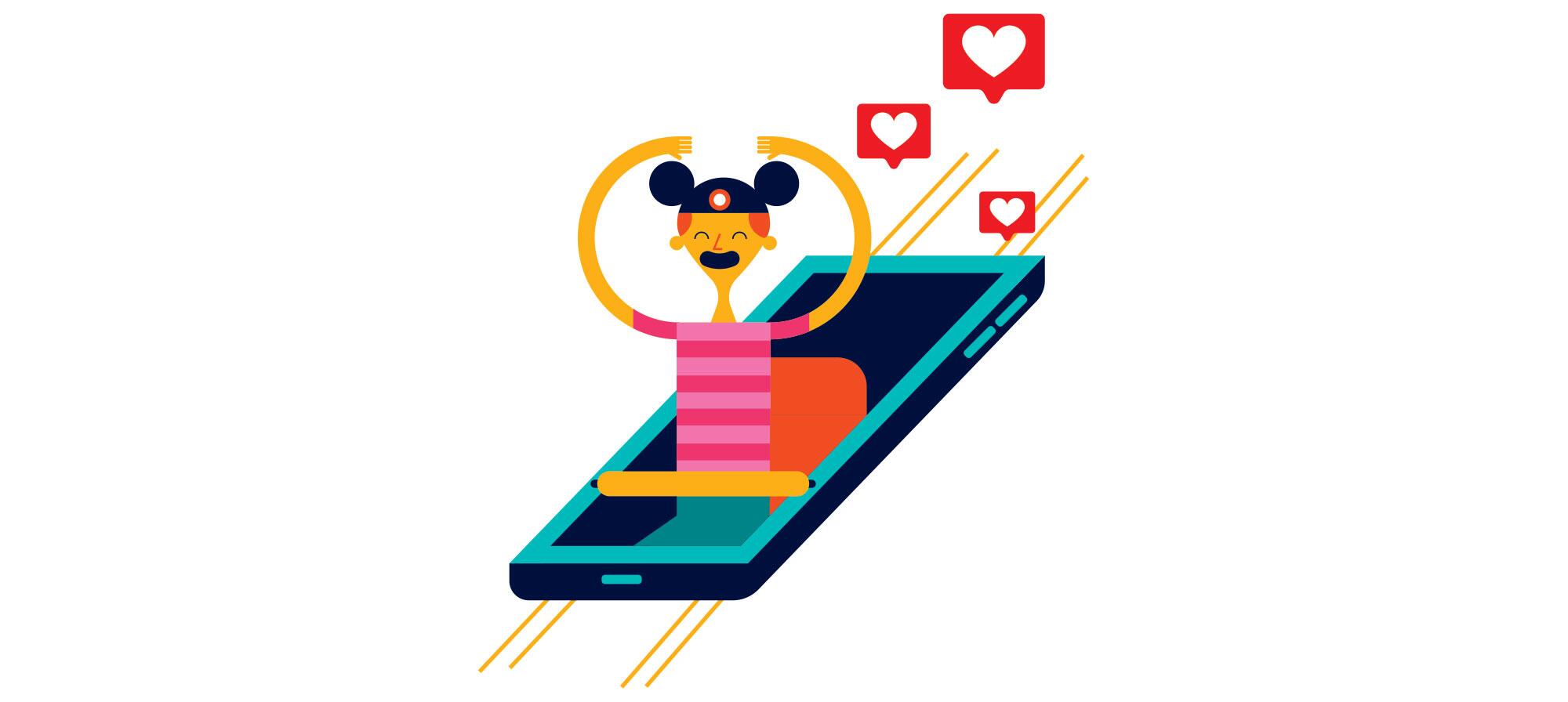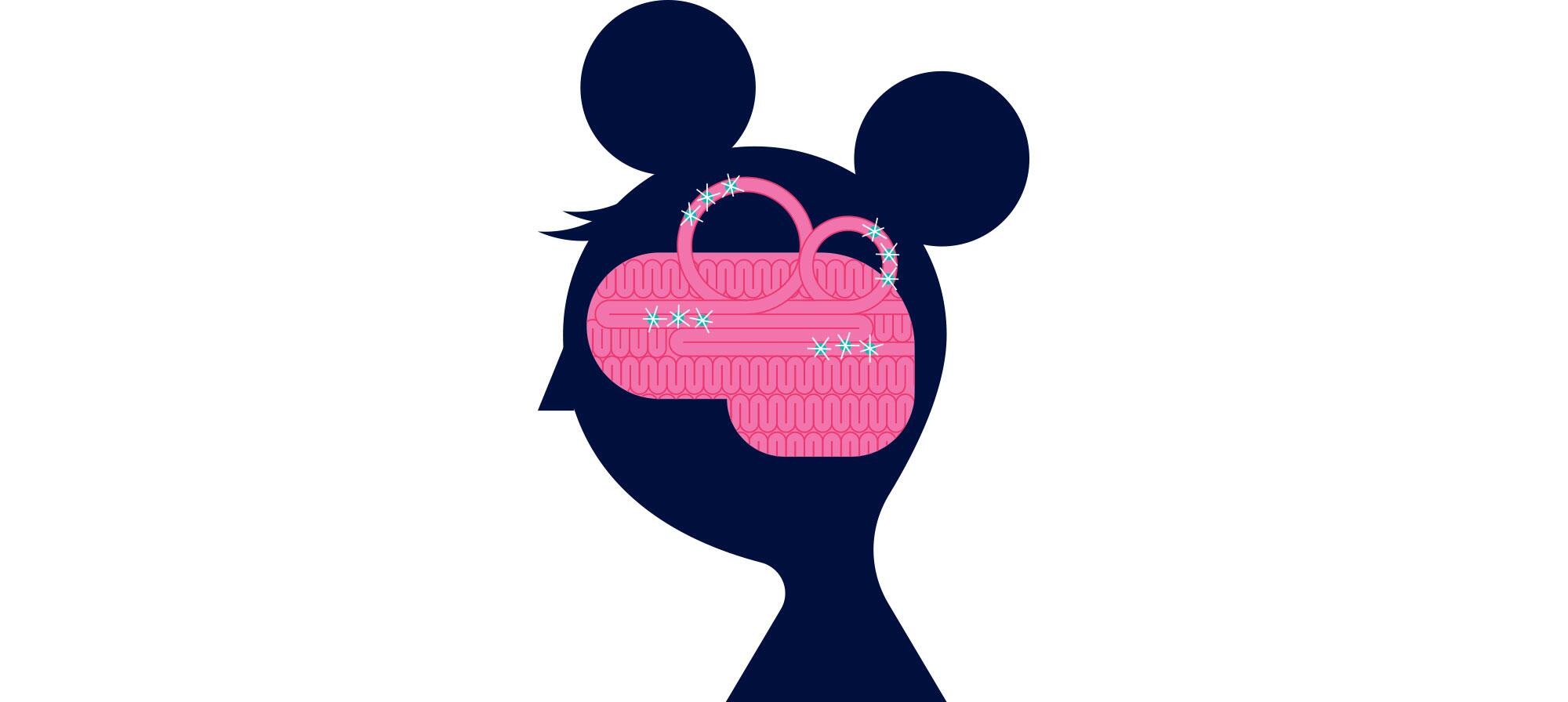To say lots of people flock to Disneyland and Walt Disney World doesn’t do the mass migration justice. Every year, individuals descend upon the parks by the tens of hundreds of thousands, and plenty of of them don’t fund the more and more costly expertise through the use of their financial savings alone. Disney die-hard Maddy Thompson of Phoenix says her husband as soon as acquired a second job to pay for her self-described “Disney dependancy.”
“One other time, we delay our son’s dental work to have the ability to afford our annual journey to Disneyland,” she says.
She’s removed from being alone. One evaluation confirmed that 18% of Disney park goers go into debt to pay for his or her Disney trip. For followers like Jeff Reitz of Huntington Seaside, who famously visited Disneyland 2,995 days in a row, such habits can develop into an obsession.
And although different theme park locations can declare they’ve loyal followers of their very own, none of them can deny Disney’s enchantment to the lots. Disney’s six U.S.-based theme parks are visited extra yearly than the subsequent 13 hottest U.S.-based theme parks mixed.
Why are individuals so drawn to the happiest place on Earth? The reply could must do with how our brains are wired. Whereas many components little doubt contribute to Disney’s enduring reputation, some scientists consider that Disney-related holidays immediate extra compulsive journey habits than others, as a result of highly effective methods the corporate employs. The following time you end up with a wierd craving to inhale the damp, musty air of Pirates of the Caribbean or stroll alongside charming Foremost Avenue U.S.A., take into account these doable causes for it.
Journey craving is actual
Although analysis round “journey craving” is new and comparatively sparse, behavioral psychologists and cognitive scientists consider a craving for journey can match the medical understanding of craving as “a robust want to change ongoing cognitive experiences” in ways in which don’t solely relate to addictions.
Neuropsychologist Paul Nussbaum, an adjunct professor on the College of Pittsburgh College of Drugs, explains that such cravings might be particularly targeted on getting particular outcomes from one’s trip. “Our mind’s circuitry is wired to each want issues and to have our wishes resolved quickly with motion,” he says. In different phrases, for individuals who describe their love of Disney journey this manner, craving a visit to Disneyland could not solely be a want, however a craving that continues to develop till glad.

(Patrick Hruby / Los Angeles Instances)
One thing smells humorous
Such yearnings are fed by any variety of components, in fact, however smells are excessive on the record due to how they set off reminiscences and constructive feelings. “The mind area essential to scent is positioned close to the hippocampus, which is a vital mind construction that helps us keep in mind,” Nussbaum explains. “That’s the reason the feeling of scent can set off reminiscences.” Certainly, a number of research present how one’s sense of scent has a stronger hyperlink to reminiscence and emotion than any of the opposite senses.
Disney appears to know this because it has stuffed its parks with machines referred to as Smellitzers — apparatuses fastidiously disguised or hidden away all through points of interest, retailers and walkways, every pumping out soothing and acquainted scents to passersby. In a 2017 interview, a 30-year Disney parks veteran stated these machines launch these acquainted scents “on objective” as a result of the corporate is conscious that guests “are utilizing all their senses” once they’re there. However past merely releasing the smells, Disney additionally makes use of fastidiously timed methods and followers to make sure these scents attain the nostrils of visitors. One Disney attraction patent notes that the trip’s Smellitzers’ “nozzles could also be supplied to direct scent supplies into proximity to the followers in order that acceptable scents could also be directed to the passenger.”
Whereas many parkgoers undoubtedly love the distribution of such smells on points of interest and whereas procuring, one fan went viral on TikTok for saying Disney’s use of Smellitzers “brainwashes” individuals who attend the parks into making purchases they could not in any other case make.
Brainwashing or not, the impact “is ingenious,” says Melanie English, a licensed medical psychologist in Seattle. She explains that not solely do such smells launch glad hormones in guests, however respiratory them in can truly scale back stress. When taking the gradual, deep breaths required to absorb every aroma, she explains, parkgoers “full some inadvertent meditation, which slows their coronary heart price down and reduces their cortisone ranges.”
Not solely do Disney Smellitzers improve the customer expertise, however due to how strongly smells are linked with reminiscence, the scents can pull guests again to the parks every time they get a whiff of comparable aromas that remind them of the woodsy pines round Grizzly Peak in Disney’s California Journey park or the freshly baked items alongside Disney’s Foremost Avenue U.S.A. One scented candle firm understands how highly effective these smells might be and sells candles that seize the “damp ocean air” related to the Pirates of the Carribean attraction, the “etherealizing scent” of using Haunted Mansion or the “earthiness” of Soarin’ Across the World.
“Odor is a chemical sense, and it’s evolutionarily historic, so it connects extra immediately with the emotional elements of the mind than the opposite senses do,” explains David Ludden, a professor of psychology at Georgia Gwinnett Faculty in Lawrenceville, Ga. “Whereas some odors rise to the extent of consciousness, many smells affect our habits at an unconscious degree,” he says, including that Disneyland’s means to evoke such unconscious feelings and join with guests so deeply is “an enormous a part of Disney’s success.”

(Patrick Hruby / Los Angeles)
Feeding peer affect
Past its distinctive strategies for distributing smells, Disney additionally advantages from and contributes to established social behaviors relating to peer affect. Although individuals often take and share photos of many sorts of journey, few holidays really feel as compulsory to doc as a visit to Disneyland. Andrew Selepak, a social media professor on the College of Florida, says persons are extremely influenced by the pictures their family and friends members share on social media. “Household holidays to Disney will not be simply images of the household in mouse ears or after a enjoyable trip, however your entire park,” he says. “We take photos of our meals, the issues we purchase, the strains we wait in, and even essentially the most minor of moments to submit and share in social media.” Ludden echoes that due to how typically individuals chronicle their Disney holidays, these following them from house really feel particularly pushed to expertise and share the identical holidays to allow them to “belong to the elite group of those that have ‘been there, performed that.’”
Selepak believes Disney acknowledges its affect and factors to the hassle it places into organising meet-and-greets with beloved characters, creating eye-popping backdrops and decor, and arising with photo-worthy treats and souvenirs. This 12 months, Disneyland additionally made Disney PhotoPass digital attraction images free for ticketed visitors, encouraging extra individuals to share pictures with their mates and followers.
And whereas strains at amusement parks aren’t distinctive to Disneyland, the consultants say Disney’s efforts to entice social media sharing pays off in methods efforts at different locations merely don’t. “What number of different theme parks have you ever been to the place the road to get a photograph with a costumed character like Mickey Mouse is so long as a number of the rides there?” asks Selepak.

(Patrick Hruby / Los Angeles)
Nostalgia we’re wired to crave
Maybe Disney’s strongest technique is the way it triggers emotions of nostalgia via its many throwback particulars: old-time attraction posters at park entrances, a prepare whistle sounding from a steam-powered locomotive because it loops across the park, basic film characters mingling in actual life with visitors, a horse-drawn road automobile transporting guests alongside Disneyland’s most seen walkway and the structure of Foremost Avenue U.S.A. constructed to resemble Walt Disney’s idyllic turn-of-the-Twentieth century hometown. Much more latest points of interest take visitors again to the classics — as an example, Mickey & Minnie’s Runaway Railway is designed to move riders into vintage-style Mickey Mouse cartoons.
“Visiting Disney parks permits individuals to indulge their nostalgia by immersing themselves on this dependable world crammed with acquainted colours, characters, smells and music,” says Erica Hepper, a lecturer of psychology on the College of Surrey in England and creator of a number of nostalgia-related research.
The rewards related to such wistful remembrances or emotions of nostalgia are many and embody improved temper, emotions of optimism, stronger social bonds and lowered anxiousness. Hepper says experiencing nostalgia this manner not solely rewards park guests whereas they’re within the parks, but additionally motivates them to need to return once they see nostalgia-triggering Disney movies at house or encounter Disney-themed merchandise and advertisements, that are in all places.
What’s extra, as a result of Disneyland opened almost 70 years in the past, many adults immediately have a few of their fondest childhood reminiscences rooted in a go to there. “Childhood is a time of safety, innocence, fantasy, and carefree and exuberant pleasure,” says Krystine Batcho, a psychology professor at Le Moyne Faculty in Syracuse, N.Y. Due to this, she says Disneyland is “strongly evocative of nostalgia” and makes individuals naturally lengthy to return to expertise their treasured childhood feelings anew.
Ludden agrees, saying that Disney theme parks present a “nostalgic refuge” for adults searching for to flee their aggravating lives.
Certainly, it’s this use of nostalgia advertising and marketing mixed with these different refined methods that the consultants say contributes to the general expertise and makes visitors of all ages need to return to the happiest place on earth many times. “Disney is completely particular in creating smells, meals, experiences and merchandise that pair very nicely collectively,” says English. “Collectively, this brings individuals again to their parks — and with pleasure.”
#scientific #cause #cease #Disneyland
